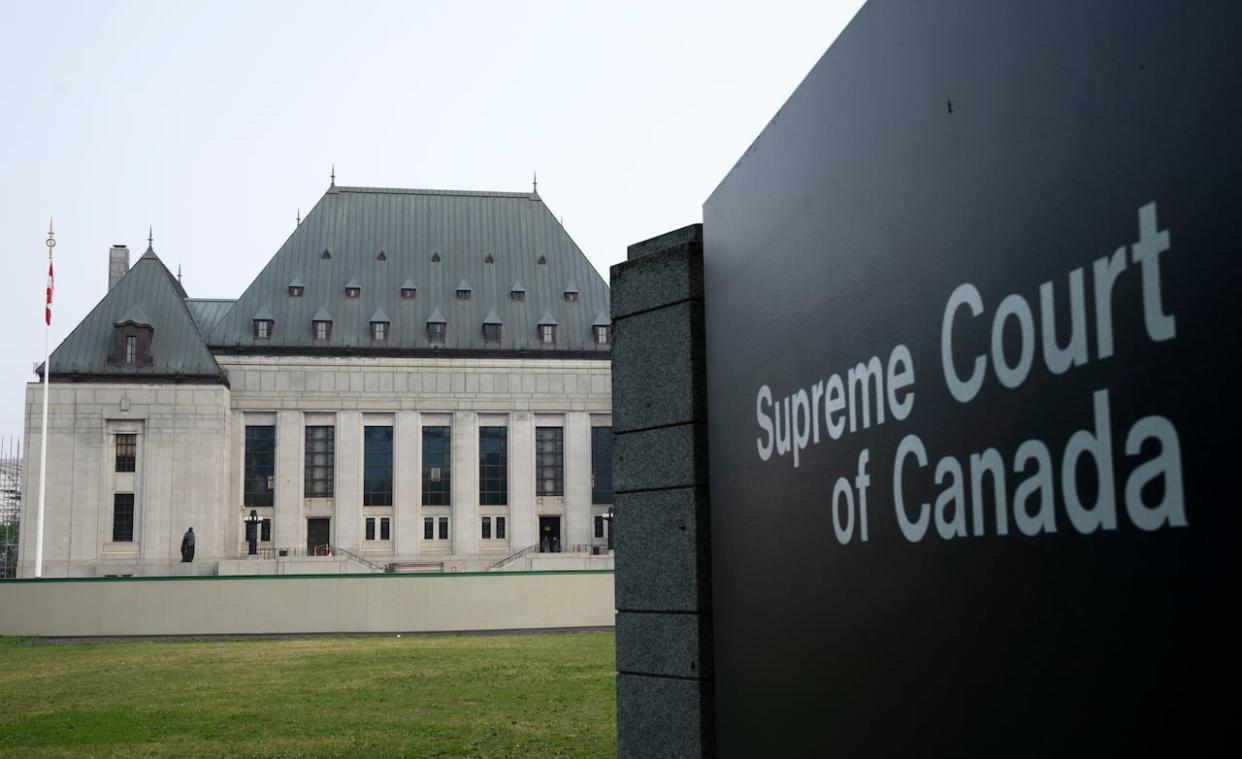Quebec court alarmed public by improperly using term 'secret trial,' Supreme Court rules

The Supreme Court of Canada issued a ruling Friday admonishing the Quebec Court of Appeal for "misguidedly" accusing a lower court of holding a secret trial when "no secret trial was held in this case."
In a unanimous decision, all nine justices on Canada's top court said "the very concept of 'secret trial' does not exist in Canada."
"That expression could in fact have suggested that [an unnamed person] had been convicted following a secret criminal proceeding," the ruling said.
"That state of affairs alarmed the public and the media. It also jeopardized public confidence in the justice system."
The case involves a police informer who was charged with criminal offences related to a crime they were helping police investigate.
In an effort to keep the informant's identity secret, process mistakes were made in the initial trial and then later "misguidedly denounced" by the Quebec Court of Appeal, the Supreme Court said Friday.
The case began sometime before 2022, when the unnamed police informer first appeared in court to answer charges against them. At that first appearance, the informant's lawyer brought forward a motion asking the court to stay the proceedings. The motion said the state had engaged in abusive conduct in laying the charges and the case had taken too long to come to trial.
In order to protect the anonymity of the informant, the judge hearing the case ordered that the trial be moved in camera. No notice was given to the media. The motion, exhibits and transcripts remained confidential and were not listed on any court docket.
When the judge dismissed the motion and convicted the police informant, the judgment was given no file number and was not made public.
The 'secret trial' accusation
The case only re-emerged on the public record when the Quebec Court of Appeal stayed the conviction in February 2022, ruling that there was an abuse of process by the state.
The Quebec Court of Appeal published its judgment but accompanied it with a sealing order that blacked out any information that could identify the informant.
In March 2022, the court released a redacted version of the ruling that was highly critical of the decision to pursue charges in the first place. But what grabbed everyone's attention was the court's stark criticism of the secrecy surrounding the original trial.
"No formal number appears on the trial judge's detailed judgment, the witnesses were questioned out of court, the parties asked the judge to decide on the basis of the transcripts, in a secret hearing, and the judgment was kept secret," the ruling said.
"In short, no trace of this trial exists, except in the memories of the individuals involved."
The court challenge
In response to the Quebec Court of Appeal's criticism of the trial, the attorney general of Quebec, the Quebec Court chief justice and several media organizations, including the CBC, challenged the confidentiality orders on the case.
Despite its criticism of the initial trial, the Quebec Court of Appeal upheld the decision to keep all information that could identify the informant confidential. The court also refused to release a redacted copy of the records related to the case.
CBC, other media outlets and the attorney general of Quebec appealed that decision to the Supreme Court of Canada, which ruled Friday that "no secret trial was held in this case."
Canada's top court essentially said that while the lower court was correct to bring the trial in camera in the first place, it made the mistake of not properly documenting the process.
"The judge mistakenly thought that the only approach to be taken in the unusual circumstances of this case was to completely conceal the existence of any in-camera hearing," the ruling said.
"There was no need for the motion for a stay of proceedings to be left of the court's docket and hearing roll and for no formal number to be assigned to it."
The Supreme Court of Canada said Friday that while it's essential to protect the identity of police informants, it must be done in a way that is "as consistent as possible with the open court principle."
The top court said maintaining the open courts principle may "require some creativity and perhaps some administrative arrangements," but it can be done.
As an example, the ruling said the court could have created a "parallel proceeding" marked on the court docket under which a redacted public judgment could be released.
"This solution makes it possible to disclose at least a minimum amount of information to interested third parties, including the news media, that wish to file a motion for review of the confidentiality orders," the ruling said.
The Supreme Court did agreed with the appeal court's decision to keep the full appeal record and all related documents sealed. The ruling said that trying to release a redacted version of the full record would come with "too high a risk of error."
The Supreme Court sided with the CBC and other media outlets Friday on the narrow point that the Quebec Court of Appeal should not have kept the very first judgment in the case fully sealed.
The Quebec Court of Appeal has been ordered to go back to the initial judgment, consult with respondents and release a redacted version of that judgment.
Christian Leblanc, the lawyer representing media outlets in the case, told CBC News the decision reaffirms the rule that courts must publish as much as possible, even in cases defined by complex confidentiality issues.
"We're very pleased with the judgment," he said. "The clear message here is that we should go through the effort of publishing a judgment even if it's redacted."

 Yahoo News
Yahoo News 
